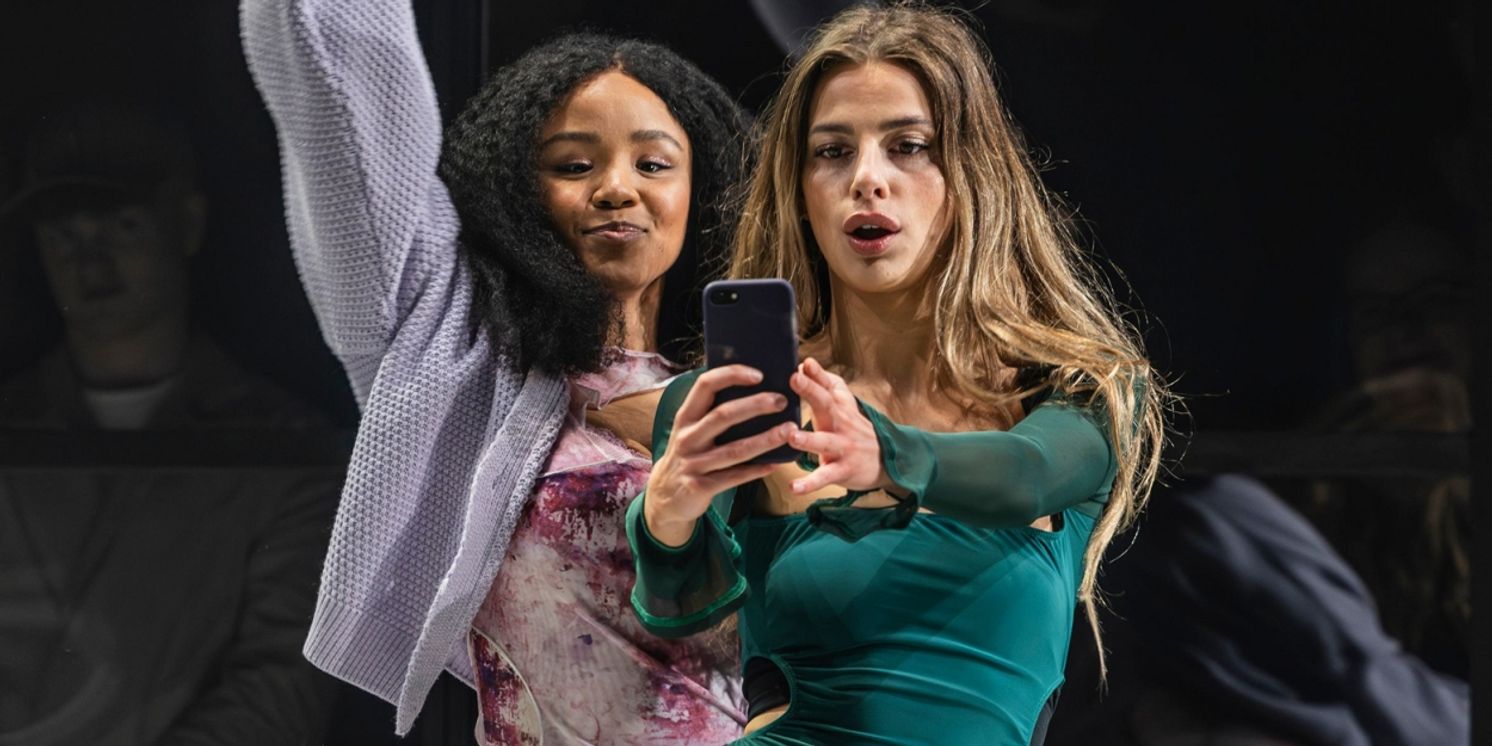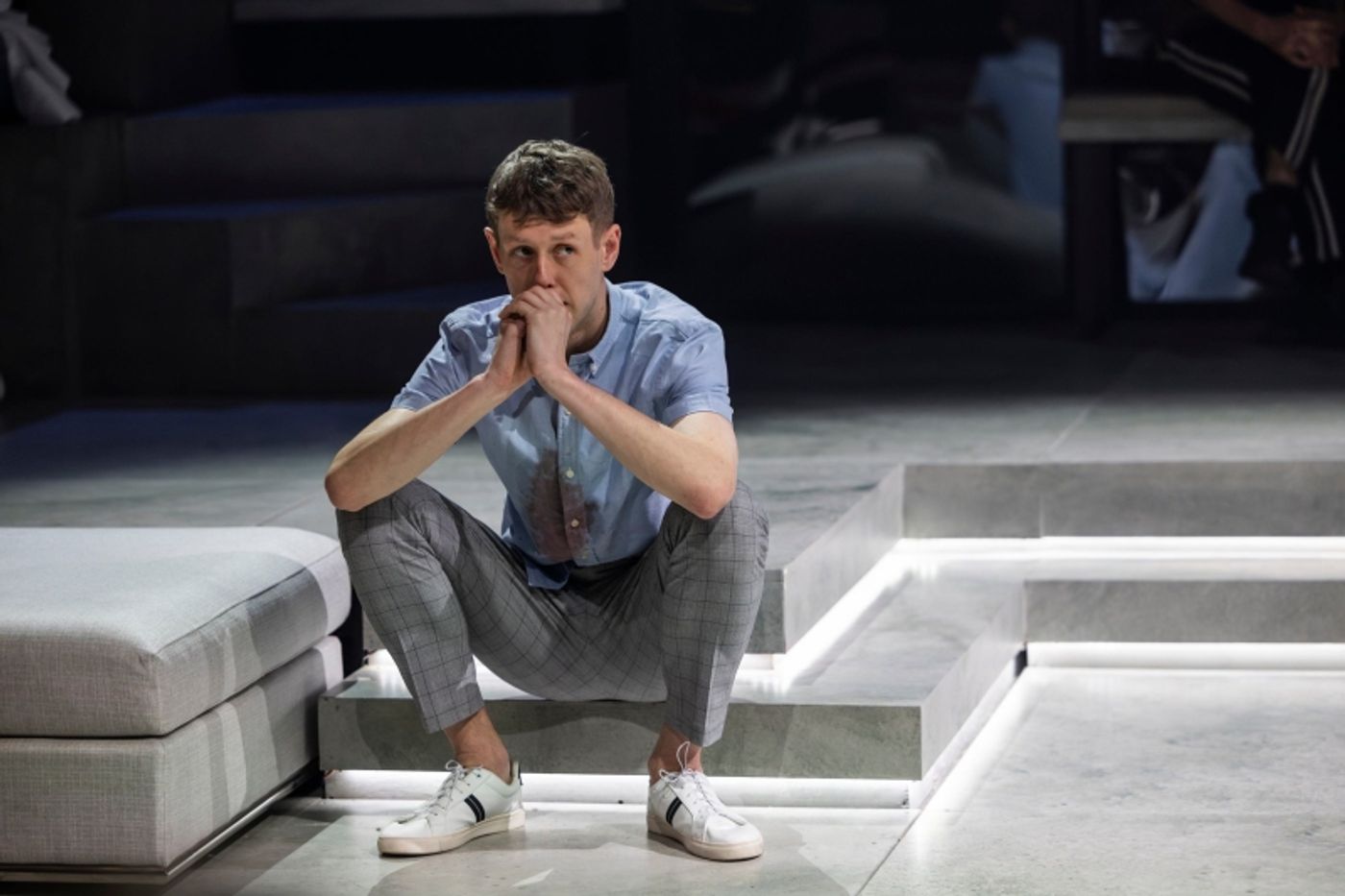Review: THE HOUSE PARTY, Chichester Festival Theatre
Sensational re-imagining of Strindberg classic

 There’s a temptation to yawn - another After Miss Julie, another bash at the uppity working class, another wicked woman to flicker our net curtains at? This time with added Zeitgeisty, immersive stuff from co-producers, Headlong and Frantic Assembly to boost credibility. It’s the kind of idea that looks good on paper, but descends into clichés on stage.
There’s a temptation to yawn - another After Miss Julie, another bash at the uppity working class, another wicked woman to flicker our net curtains at? This time with added Zeitgeisty, immersive stuff from co-producers, Headlong and Frantic Assembly to boost credibility. It’s the kind of idea that looks good on paper, but descends into clichés on stage.
Well, if you are thinking that way, think again.
Laura Lomas’s The House Party brings Strindberg’s classic searing into the 21st century, a blazing hot ménage à trois that transforms the Minerva stage into a cauldron of desire, resentment and revenge, in which we are complicit. Don’t be afraid to take a few minutes to decompress at the curtain - I’m still decompressing now!

We open on two teens, BFFs, Insta-ready and eager to get the party started. Christine is sensible, with something on her mind; Julie, whose 18th birthday prompts the celebration, is wild, with boys and booze on her mind. She’s fragile and brimming with entitlement; her friend is loyal, slightly in awe of what the rich kids can do.
Jon, Christine’s bf, arrives and, if not quite a stereotyped chippy Scouser, is a Scouser all the same. He wants Christine to focus on her Cambridge interview the next morning and, though the couple are close, there’s plenty between him and Julie too, stretching all the way back to when his mother cleaned for Julie’s mother and he would eye the exotic, haughty girl with ununderstood lust.
When Julie overhears Christine planning for uni on her own and not Thailand with her, the blue touch paper is lit, so you’d better be standing back.
The three leads are electric. Lomas beefs up the put-upon Christine giving her agency and dreams that, in any equitable world, would come true. Rachelle Diedericks captures the uncertainty of such a hinge point in a teenager’s life, especially one without the roadmap of middle class expectations to follow. She knows Cambridge will be great, but Impostor Syndrome is gnawing at her, self-sabotage never far away.
Speaking of which, Julie is all self-sabotage, hurtling from one disastrous decision to another but, of course, protected by the carapace - all but invincible - of privilege. Nadia Parkes is perfectly cast; irritating, immature, self-obsessed, but revealing an undertow of intelligence and a genuine history of mistreatment that provokes sympathy - and she knows it. Her come hither looks towards Jon are almost farcical in their obvious manipulation, something Christine can see but she’s paralysed by her gender and class.
Initially, Jon is too. Josh Finan is as good as the two women who circle him, helped by tremendous work by Aundrea Fudge on voice and dialect - that is exactly how a Liverpool lad, out of his depth, would talk (and I should know). He tries to do the right thing, but Julie has been pressing his buttons to get exactly the reaction she wants to return the perceived slight she got from Christine. It’s painful to watch, especially after his heartfelt confession of the ache of longing only an unrequited first love can bring - but that’s just another lever for Julie to pull.
Director, Holly Race Roughan, never lets the pace drop and skillfully manages a post-interval denouement that could become self-indulgent but just about swerves the critique that it’s too on-the-nose. Some people may not be aware that this is how things so often turn out, but so often, it does.
All three of our troubled teens find solace somewhere, but the night of the party has scarred them. We breathe easier once out in the open air and can reflect on how strong a structure Strindberg bequeathed us and how dazzlingly well this production has realised its updating. Will it join Chichester Festival Theatre’s long list of West End transfers? It certainly should.
The House Party at the Minerva, Chichester Festival Theatre until 1 June
Photo Credits: Ellie Kurttz
Reader Reviews
Videos

